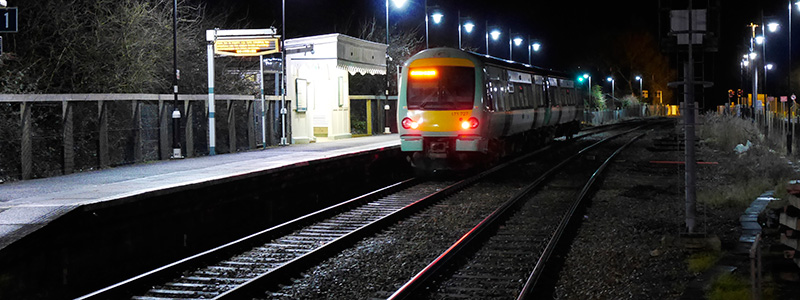Amber Rudd held a second rail summit last week to update interested parties. The first half of the meeting was primarily about the current train service in the region; the second half focused on the planned extension of the Javelin service beyond Ashford to Rye, Hastings and Bexhill, first announced at last year’s Marsh Link Action Group (MLAG) annual meeting and rail summit.
There was significant comment about the Rye Shuttle service in presentations from Rudd and Alex Foulds, commercial director of Southern. The significant disruption to services over the first few weeks of the year was recognised, as was the lack of communication to passengers. The promise was to do better on advising travellers – we wait to check the reality of this – while the cancellations were put down to rolling stock issues following damage to equipment.
We had previously been advised that the damage caused to units was in services on the Uckfield line (which use the same rolling stock as the Marshlink) but a unit was moved from this line to Uckfield while repairs took place. This shows how the Rye Shuttle is seen as of lesser importance than the Uckfield line (it has a significant commuter service). However, on this occasion, MLAG recognises that Uckfield line passengers suffered a significant deterioration in their service, too.
Southern is soon to take delivery of four additional units and has allocated them all to the Uckfield line. Again, the reason for this allocation is the commuter demand. Southern has given this news the maximum amount of political spin by emphasising that the Marshlink train sets will not be so readily purloined in the event of a failure on the Uckfield.
The other spectre at the meeting was the eagerly awaited Javelin service from St Pancras to Ashford, Rye, Hastings and Bexhill. This year there was no suggestion of there being an “absolute commitment” to build this line. In presentations from Network Rail and Southeastern the matters being itemised were those required to achieve the objective. The first objective is for Network Rail to understand the operational and infrastructure requirements of the project. The regeneration/ business case has to be evaluated by the Department for Transport (we were aided in this respect by a precise presentation by the Rail Minister, Claire Perry and by Richard Howkins of Network Rail). As we know from the Network Rail presentation to MLAG last year, the physical issues to be resolved are:
- electrification of the Marshlink line
- signalling at Bexhill;
- remodelling of the track layout at Ashford;
- the dualling/ passing loop at Rye
- the two level crossings at East Guldeford where input is awaited from the Highways Agency to remove the need for two level crossings on the A259
All of this needs funding, as do the additional Javelin units built by Hitachi.
Showing some razzmatazz, Network Rail and the railway operators came up with their own spectre at the end of the summit – a Javelin appeared at Hastings Station to take attendees on a return trip to Eastbourne. Unfortunately, to reach Hastings it had to use the London to Hastings line because, as we are only too well aware, the Marshlink doesn’t have power for this train.
But putting this to one side, this year’s summit seemed to be more realistic and analytical than last year’s with progress being made on all fronts. But there is still a very long way to go. Fortunately the direction is positive. The next significant step will be towards the end of this year when there should be a reference to it in the local route utilisation strategy produced by the Office of Rail Regulation/ Network Rail. It might sound a very dry read but should be essential reading for all those interested in this project.
Stuart Harland is chairman of the Marsh Link Action Group / Photo: Tony Nunn



